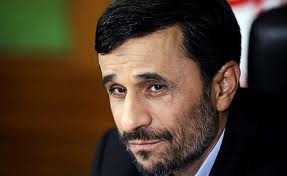
Washington, April 19: The world condemnation of Iranian President Mahmoud Ahmadinejad's recent visit to the UAE's Abu Mousa island and his provocative remarks continued to escalate on Wednesday with the United States
and Arab forums joining the chorus. The US urged Iran to enter talks with the UAE over the territorial disputes as it criticised President Ahmadinejad for visiting a contested island.
State Department spokesman Mark Toner said the US supported ‘a peaceful resolution' over the three islands of Abu Mousa and the Greater and Lesser Tunbs and backed the UAE's call for the issue to be resolved through talks or at the International Court of Justice.
‘The United States appreciates the UAE's efforts in this regard and urges Iran to respond positively to the UAE's initiative to resolve the issue through direct negotiations,' Toner said in a statement.
‘Actions such as the April 11 visit by Iranian President Ahmadinejad to the Abu Mousa island only complicate efforts to settle the issue,' he said.
In Cairo, the Arab Parliament urged Iran to stop provocative acts over the issue. Arab Parliament Speaker Ali Salem Al Dakbasi reiterated in a statement the Pan-Arab body's complete denunciation and rejection of statements by Iranian Foreign Minister Ali Akbar Salehi and former Revolutionary Guard chief Mohsen Rezai who is the current Secretary of the Expediency Discernment Council.
‘While the Arab Gulf states tackle the issue of the three occupied islands of the UAE in a positive, rational and civilised way, the Iranians act in a provocative way which we reject,' Al Dakbasi said.
He accused Iran of using irresponsible threats and statements in an attempt to distract attention from its occupation of another country's territory, adding that this is not the respectable and civilised manner of treating neighbours.
‘If Iran has historical rights to the three UAE's islands, why wouldn't it accept arbitration by the international law and the referral of the whole issue to International Court of Justice,' Al Dakbasi asked.
‘All Arabs back the UAE's defence of its historical rights and full sovereignty on the three islands,' he said, adding: ‘This visit has exposed Teheran's false claims regarding its friendship and peaceful relations with the Gulf countries.'
In New York, the Arab Group at the United Nations, in a letter to Secretary-General Ban Ki-moon, condemned Ahmadinejad's visit to Abu Mousa Island which is occupied by Iran since 1971, and called for an end to the Iranian occupation.
The letter, addressed by the UAE's permanent representative to UN Ahmed Abdul Rahman Al Jaramain, expressed the Arab Group's concern over the first visit by any top-level Iranian official to the island, stressing that the visit is a flagrant violation of the principles of the international law.
It renewed full support of the Arab Group member countries to the full sovereignty of the UAE over the three islands, in addition to supporting all peaceful measures and means adopted to restore its sovereignty over the occupied islands.





Comments
Add new comment